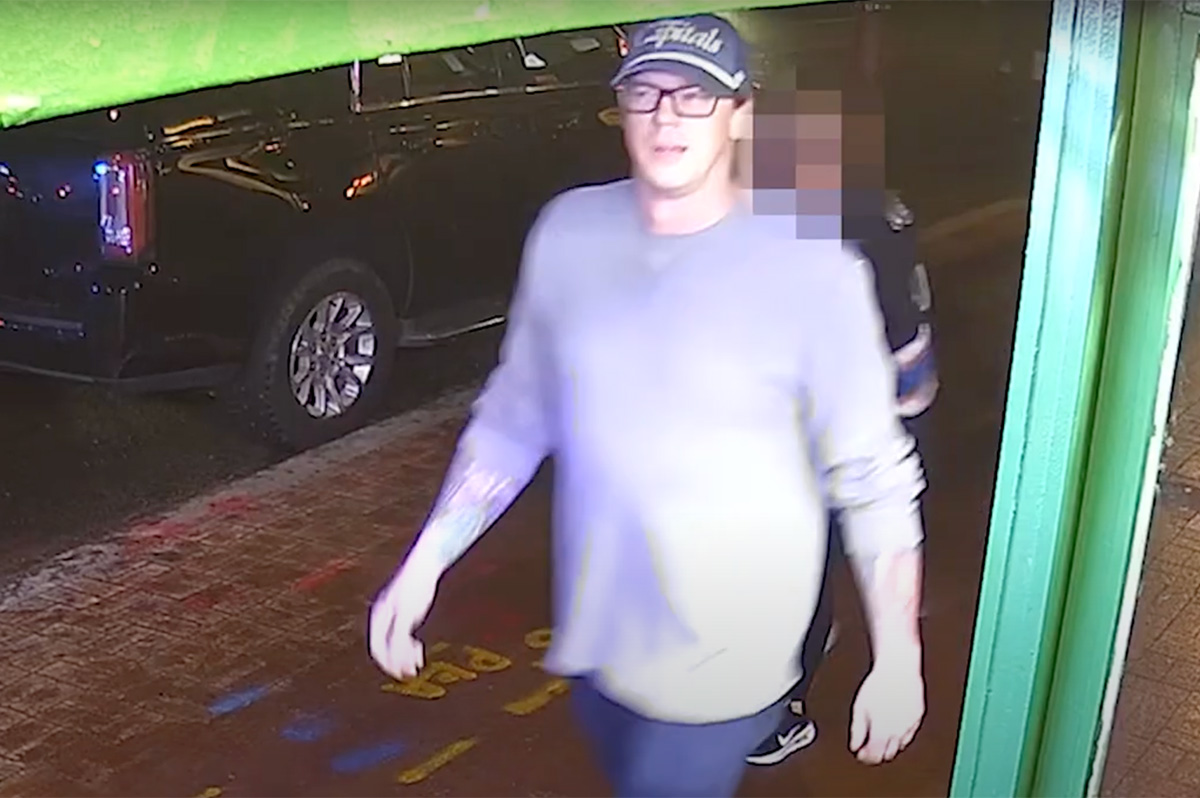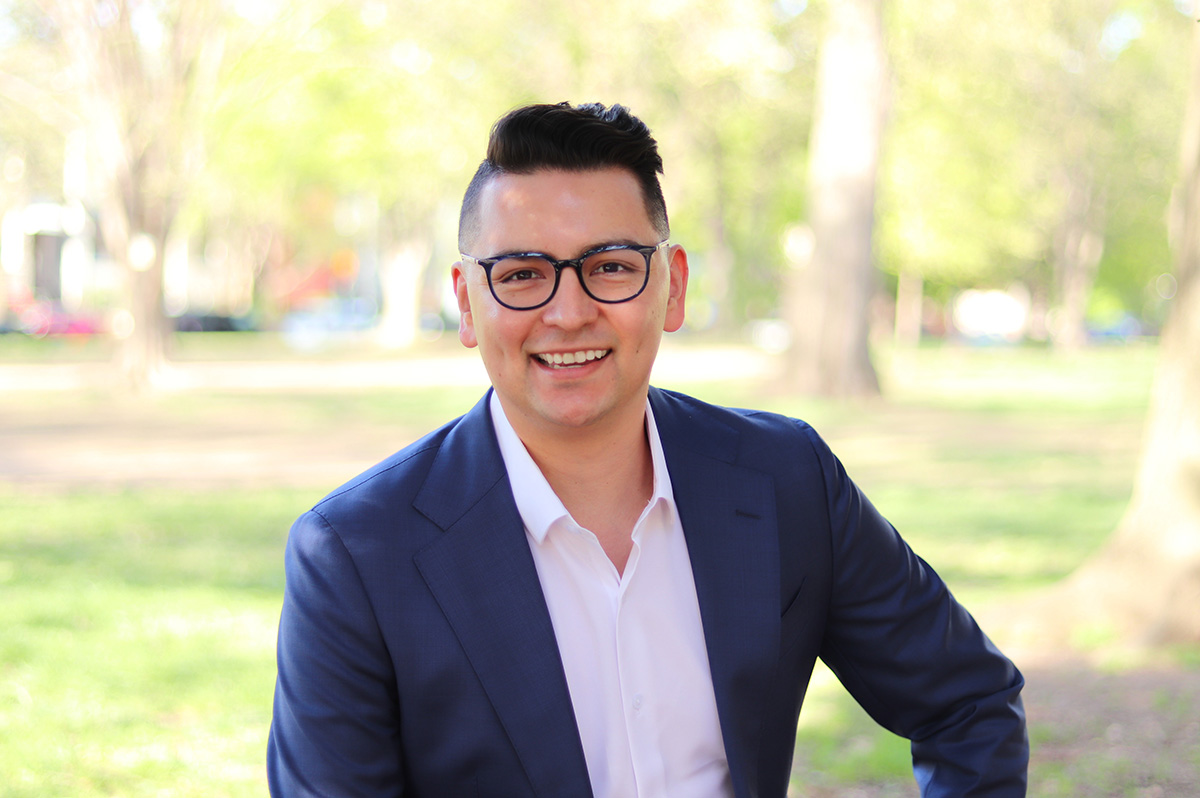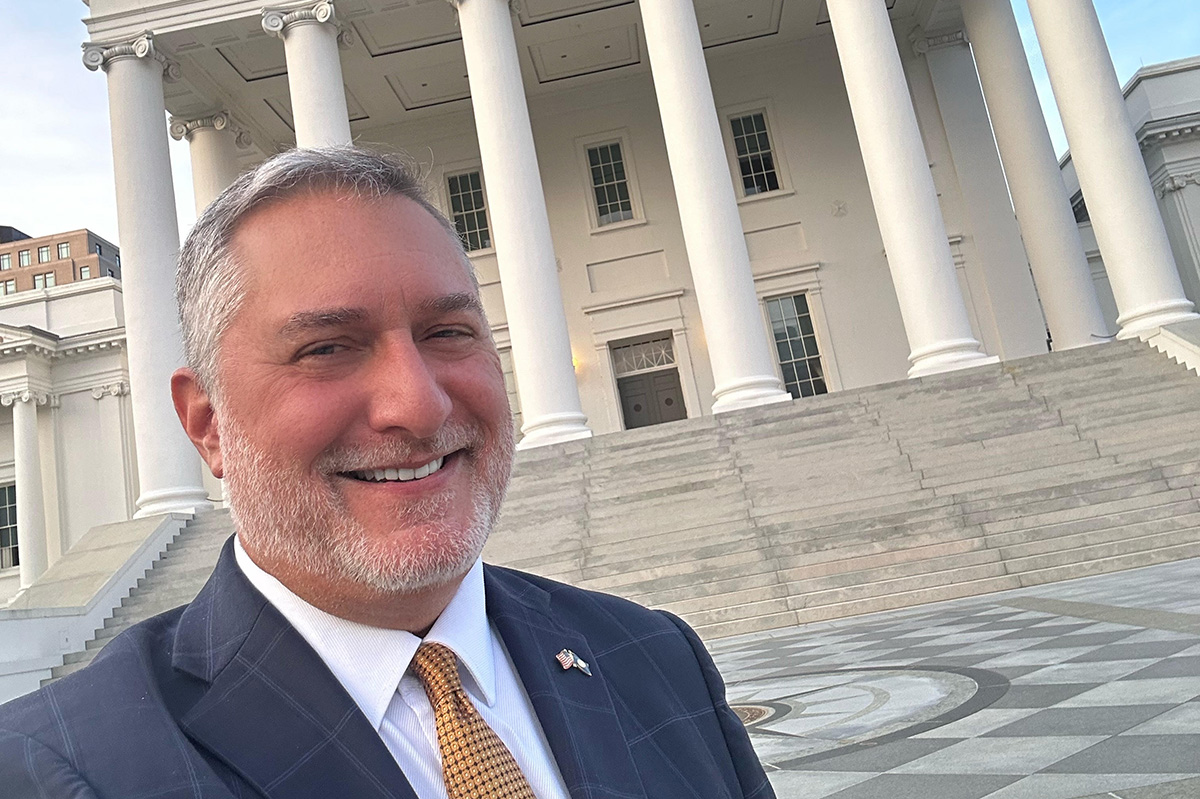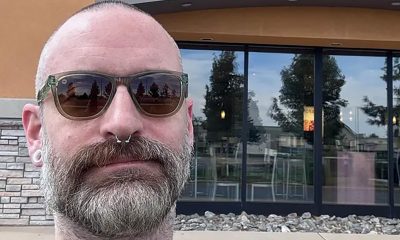Local
Sexual assault may be dropped in Wone murder case
The lead prosecutor in the Robert Wone murder case startled courtroom spectators last
The lead prosecutor in the Robert Wone murder case startled courtroom spectators last week when he said the government would likely drop its theory that Wone was immobilized by a paralytic drug and sexually assaulted before being stabbed to death in the Dupont Circle home of three gay men.
The disclosure by Assistant U.S. Attorney Glenn Kirschner at a D.C. Superior Court hearing March 12 drew visible sighs of relief from defendants Joseph Price, Victor Zaborsky and Dylan Ward. Price gave a thumbs-up signal to his attorney, Bernard Grimm.
“This appears to be a major victory for the defense,” said D.C. attorney Dale Sanders, who practices criminal law in the District.
Sanders said that by withdrawing its earlier contention that Wone was sexually assaulted and drugged, prosecutors would make it easier for the defense to promote their own contention that an unidentified intruder killed Wone after entering the home of the three gay men through a rear door.
The men have been indicted on charges of obstruction of justice, conspiracy to obstruct justice, and evidence tampering in connection with the August 2006 murder. Authorities have yet to charge anyone with the murder itself. The trial is scheduled to begin May 10.
Kirschner told D.C. Superior Court Judge Lynn Leibovitz that prosecutors were still considering introducing other evidence at trial considered highly controversial: a collection of S&M sex toys seized by police from Ward’s bedroom, which prosecutors have said was located across the hall from where Wone was found stabbed in a second-floor guest bedroom.
Wone, a prominent Washington attorney, was friends with the three men and spending the night at their home after working late in his downtown office, the men and members of Wone’s family have said. Wone was married to a woman, and his family members said he was straight.
Leibovitz said she had yet to see sufficient evidence presented by prosecutors to justify the introduction of the “devices” at trial. She noted that defense attorneys presented arguments as to why such evidence was not relevant to the case and how it would be prejudicial to the jury.
She directed prosecutors to file a motion before April 2 explaining their rationale for introducing such evidence and said she would rule on its admissibility at that time.
Leibovitz denied a motion by the defense asking the court to order prosecutors to release more details surrounding their evidence and theories in the case, saying the government has complied with all “discovery” requirements for informing the defense of its evidence.
Last week’s hearing followed a court motion filed by prosecutors in February seeking permission to introduce evidence at trial that Price, Zaborsky and Ward engaged in possible criminal conduct not identified in the charges pending against them. Some of the alleged conduct cited in the court filing pertained to the use of S&M-related restraining devices as well as devices used to administer electrical shocks to a person’s genitals.
“Are you planning to tell the jury that he was sexually assaulted, restrained,” that sex toys were used on him and he was injected with something? Leibovitz asked Kirschner.
“We’re moving away from the sexual assault proof,” Kirschner replied. But he said prosecutors still planned to offer some evidence that “restraints” were found in Ward’s bedroom.
In response to another assertion made by prosecutors in their February court filing — that “the killer is someone known to and being protected” by Price, Zaborsky and Ward — Leibovitz asked Kirschner, ” Do you plan to say one or all of these men killed Wone?”
“Not directly,” Kirschner replied.
He said prosecutors also plan to present evidence from the autopsy of needle marks on Wone’s body, including marks he noted the government’s medical experts would show were not made by emergency medical technicians who arrived at the scene and tried to revive Wone.
Kirschner disclosed at the hearing that he had submitted a letter to the defense earlier in the day, which he also filed with the court, saying that the government obtained new information from medical experts that appeared to raise doubts over whether Wone had been sexually assaulted or immobilized by a paralytic drug.
Authorities first raised that theory in a lengthy criminal complaint filed at the time police brought criminal charges against the three men for obstruction of justice and evidence tampering.
The complaint cited an autopsy finding showing that Wone suffered three surgical-like, clean stab wounds in the chest and abdomen that could only have occurred if he were lying completely still. The complaint, and subsequent arguments by prosecutors, claimed that a person being stabbed would be expected to recoil in pain or move in a defensive way, causing the wounds to be jagged or distorted.
Prosecutors said a paralytic drug must have been administered to Wone to render him immobile, but they acknowledged that the autopsy and subsequent chemical tests could not find traces of such a drug in Wone’s body. They argued that the type of anesthesia-like drug in question usually dissipates quickly and cannot be detected in tests.
But defense attorneys say in their own court filings that they would present expert witnesses to show that such drugs are detectable in tests, and the government’s inability to detect such a drug shows it was never administered.
According to prosecutors, the sexual assault theory was based on another finding in the autopsy that traces of Wone’s semen were found inside his rectum. The defense later argued that its own experts would show that the semen had no sperm cells, indicating it was secreted naturally by the body after Wone died, as muscles relax during the post mortem processes.
Sanders said that although the apparent decision by prosecutors to put aside their earlier sexual assault and paralytic drug theory is a blow to the prosecutors’ case, other evidence obtained against the three men remains significant and strong.
He noted, among other things, that investigators found traces of blood in the lint trap of the men’s clothes dryer and in a drain outside the house; findings by evidence technicians that someone cleaned the crime scene by attempting to wipe blood spattered near the body; and that the bloody kitchen knife that the men said they found near Wone’s body bore fibers from a towel, indicating to evidence experts that Wone’s blood was wiped onto knife blade by someone, with another knife likely used to kill Wone.
Authorities also have said Wone appeared to have been dead a significant period of time before Zaborsky called 911 to report a stabbing; and rescue workers reported finding very little blood on Wone’s chest and body, indicating that someone cleaned the body before police and rescue workers were called, according to the police affidavit.
“They won this battle, but the war doesn’t look good for them,” Sanders said. “You can’t lose track of the big picture, which doesn’t look good for these guys.”
District of Columbia
D.C. police seek help in identifying suspect in anti-gay threats case
Victim threatened with assault, called ‘faggot’ as he left Capitals game

D.C. police are seeking help from the public in identifying a male suspect whose image was captured by a video surveillance camera after he allegedly shouted anti-gay slurs and threatened to assault a man at 6th and H Streets, N.W. on March 20 at about 9:54 p.m.
A police report says the victim told police the incident took place shortly after he exited the nearby Capital One Arena where he had attended a Washington Capitals hockey game.
The police report says the incident began when the victim saw the suspect yell a racist slur at a person behind the victim and started to berate a valet operator.
“Suspect 1 then turned his attention to Victim 1 and called him a ‘faggot’ among other homophobic slurs,” the report says. It says the victim then used his phone to record the suspect, prompting the suspect to walk away before returning and “snatching” the phone from the victim’s hand.
“Suspect 1 walked several feet as Victim 1 followed, requesting his phone back,” the report continues. “Suspect 1 stopped and turned to Victim 1 and while yelling other obscenities exclaimed ‘if you keep recording, I’m going to kick your ass.’” The report concludes by saying the victim was able to recover his phone.
It lists the incident as a “Threats To Do Bodily Harm” offense that is a suspected hate crime.
“Anyone who can identify this suspect or has knowledge of this incident should take no action but call police at 202-727-9099, or text your tip to the Department’s TEXT TIP LINE at 50411,” according to a separate police statement released April 23.
The statement says police currently offer an award of up to $1,000 to anyone who can provide information that leads to an arrest and indictment of the person or persons responsible for a crime committed in D.C.
D.C. police spokesperson Tom Lynch said the case has been under investigation since the incident occurred on March 20. He said the video image of the suspect, most likely obtained from a security camera from a nearby business, was released to the public as soon as it was obtained and processed through the investigation.
District of Columbia
Wanda Alston Foundation names new executive director
Longtime LGBTQ rights advocate Cesar Toledo to succeed June Crenshaw

The Wanda Alston Foundation, the D.C.-based organization that has provided housing and support services for homeless LGBTQ youth since its founding in 2008, announced it has appointed longtime LGBTQ rights advocate Cesar Toledo as its new executive director.
In an April 22 statement, the organization said that as part of a planned leadership transition launched in November 2024, Toledo will succeed June Crenshaw, who Alston Foundation officials and LGBTQ community activists say has led the organization with distinction in her role as executive director for the past nine years.
In a statement released last November, the foundation announced Crenshaw was stepping down from her role as executive director after deciding to “to step into her next chapter.”
“June’s leadership has been truly transformative,” said Alston Foundation Board Chair Darrin Glymph in the group’s April 22 statement. “We are immensely grateful for her dedication and equally excited for the energy and experience that Cesar brings to lead us into this next chapter,” Glymph said.
“A seasoned LGBTQ+ advocate, Cesar brings over a decade of experience leading national campaigns, shaping public policy, and building inclusive communities,” the statement released by the group says. “Most recently, he served as the National LGBTQ+ Engagement Director for the Harris for President Campaign and has built a career focused on advancing equality and equitable education,” it says.
Biographical information about Toledo shows that immediately prior to working for the Harris For President Campaign, he served since April 2023 as deputy director for Democrats for Education Reform DC (DFER DC), a political group that helps to elect candidates for public office committed to quality education for all students, including minorities, people of color and LGBTQ youth.
Before joining DFER DC, Toledo served as political director for the LGBTQ+ Victory Fund, where he assisted in electing out LGBTQ candidates to all levels of public office across the U.S.
“I’m really excited about joining the Wanda Alston Foundation,” Toledo told the Washington Blade. “After a decade of working at the intersection of politics and policy and advancing political candidates and equitable education here in D.C., I wanted to shift my career to direct services to the most vulnerable folks in the LGBTQ+ family and our homeless youth,” he said.
Among other things, he said he would push for increasing the Alston Foundation’s visibility and mainlining its services for LGBTQ youth at a time when the national political climate has become less supportive.
A statement on its website says the Alston Foundation was founded in 2008 “in memory of Wanda Alston, a fierce LGBTQ+ activist, national advocate, and government official who was admired by District residents.”
The statement adds, “The foundation opened the first housing program in the nation’s capital in 2008 providing pre-independent transitional living and life-saving support services to LGBTQ+ youth.”
In a separate statement, the Alston Foundation announced it would hold a “thank you” celebration of appreciation for June Crenshaw from 6-8 p.m. on May 20 at Crush Dance Bar located at 2007 14th Street, N.W. in D.C.
“Let’s come together to celebrate her dedication and commitment for everything she has done for the LGBTQIA homeless youth population,” the statement says.
Virginia
Gay talk show host wins GOP nom for Va. lieutenant guv
John Reid becomes first out gay nominee for statewide office in state

John Reid, a conservative gay radio talk show host in Richmond for many years, this week secured the Republican nomination for the office of lieutenant governor in Virginia, becoming the first known openly gay person to be nominated for a statewide office in that state.
Reid secured the nomination after his only rival in the Republican primary, Fairfax County Supervisor Pat Herrity, dropped out of the race this week for health reasons.
Herrity’s decision to withdraw from the race finalized the GOP nominees for Virginia’s three statewide contests in the November general election in what political observers are calling an unusually diverse GOP slate.
Current Virginia Lt. Gov. Winsome Earle-Sears, a Black woman, captured the GOP nomination for governor without a GOP opponent. Jason S. Miyares, a Hispanic man, is running for re-election as Virginia attorney general without a GOP rival. And Reid, a gay man, is the GOP nominee for lieutenant governor.
Reid will face one of six Democratic candidates for lieutenant governor who are competing in the June 17 Democratic primary.
The Blade spoke with Reid on Tuesday. Below is a partial transcript of that interview.
Blade: Is there a message you have for LGBTQ voters in Virginia, including Democrats, for why you think they should vote for you?
Reid: Well, the thing that I would say to gay voters who are looking and examining the candidates, is that I was out of the closet as a gay Republican publicly in very difficult rooms where people weren’t accepting of gay men – long before Donald Trump said I don’t care about this stuff.
And long before polite society said this was OK. So, in the ‘90s I came out on television and said on Oct. 11 – it was on National Coming Out Day. It was probably in 1996 or 1997. I started at the TV station in 1994. So, it was a couple of years into it.
I came out and said you never know your news anchor could be gay on National Coming Out Day. And everyone was appalled. How can you say this? You’re not supposed to say something like that. So even though I’m a Republican I know some people in the LGBT community are reflexively hostile to Republicans.
I took that step in public, and I think I helped change a lot of minds within the Republican Party and within central Virginia, which continues to be a pretty conservative place by being true to who I am. I spoke out in meetings around Republican staff and legislators and said I think we are not doing the right thing by being hostile to gay marriage.
We talk about the importance of family – Republicans talk about the importance of family, the importance of marriage as a fundamental building block of society. And a gay marriage is a net positive. Is it biblical to people who are following traditional Christian theology? No. But is it good for our society to have people in committed relationships? I think yes.
When we were going through the debate over gays in the military I said I see no reason that someone who is qualified to be in the military and can meet every single standard that everyone else is asked to meet, why should they not be in the Naval Academy, the Air Force Academy, West Point? Or serving as a grunt in active duty. Why would we exclude those people?
And those were very unpopular positions within the Republican Party.
Blade: Your campaign website says you have supported civil unions for same-sex couples. I could have missed seeing it, but I didn’t see an expression of support for gay marriage. Are you saying now that you support full same-sex marriage?
Reid: You know, you’re right. There is a distinction. And I think marriage is completely legitimate. Civil unions – if you want to go and sign paperwork at the courthouse – that’s great. If you want to be married and if a church wants to marry you if you find a church and religious leader and group that wants to bless that – that’s what I hope to do with my partner now.
Sometime in the near future I hope we will be married. And it’s very important to me as a Christian to be married in a church. So, that’s interesting. Most people would not draw that distinction. I appreciate that you’re drawing a distinction. I’m supportive of both.
Blade: Did you say you worked for a member of Congress? Can you say who that was?
Reid: George Allen, the senator from Virginia. And, of course, you and I – I know you’ve covered so many stories like this that you’ve brought together. But it was a very difficult position. When I started with Sen. Allen, he had a very libertarian attitude about this. The [Virginia State] constitutional amendment was not necessary. There was no need to go down that road.
And of course President Bush – George W. – was very assertive during the 2004 campaign. And then the issue continued to bubble up and you know we wound up with this amendment in the Virginia Constitution that banned gay marriage until the Supreme Court decision. And I was not supportive of that. And I voted for my boss, my senator, who I respected and still do respect.
Blade: Your website shows that your support for the gay community does not extend to the transgender community.
Reid: Yeah, I hate this. But I do think that our current focus on trans issues is where the gay rights movement has jumped the shark. And I think we’re losing support that we worked very diligently for decades to build with the average person. And I’m puzzled that the former leaders of the Human Rights Campaign had presidents when Elizabeth Birch and others – I don’t know what their stance is today.
I do recall that all of us who talked about gay rights issues focused on normalcy and that we would meet every standard that everyone else met. That all the vile things that were said about gays being pedophiles and grooming children – that simply was not true.
And I think we have stumbled into a very unfortunate and dangerous territory where we’re almost taunting the average person with an insistence that they accept drag queen story hour and the provocative books and provocative media that the average person would say, ‘You told us you were normal. – quote unquote normal – and now you are peddling an agenda which we don’t agree with and you’re being really aggressive about it.
And that’s really a difference. I know you’ve been covering it for a long time. I don’t know if you agree with this. I think we are peddling a very different political agenda today than the gay community was 20 years ago. And I think we should restrain ourselves and be cautious about that. And I think we’re in dangerous territory with the general population. And I’d urge caution about that.
Blade: Online reports show that there are as many as six Democratic candidates competing for the lieutenant governor’s position in the June 17 Democratic primary. Do you know any of them?
Reid: I’m familiar with most of them. Some are from the Richmond area. And I believe they are all very supportive of gay rights, which is I think a good thing. My reason for challenging them as a Republican – and I think there are other places where there is a lack of appropriate leadership and good judgment. And so, I don’t expect the gay issue would be a real issue. The trans issue may be a point of contention in the race.
But I don’t think the gay issue – and I do draw a distinction between the two — I don’t think that will be a real dividing line with those Democrat[ic] candidates.
Blade: So unlike when you were a TV news anchor, on your radio talk show were you able to offer more opinions and commentary?
Reid: That’s correct. There was a lot of opining, no script. So, I was able to tell stories about how I traveled to Miami, and I went to Washington. I went to the Kennedy Center and shared some of my life and lifestyle as appropriate with the audience.
Blade: Well, thank you for this interview.
Reid: I’m happy to talk to you. One of the reasons I called you back is that the political consultants have always told me don’t talk to anybody that might disagree with you. And I reject that. I have already lived 30 years as an out gay man. And it has been very difficult. And I would like to make it easier for the next generation to live their authentic selves. … Calling you and talking to you against the advice of all these people who say never do that, I’m hopeful that my willingness to engage and be candid will ultimately be well received, I hope.




















